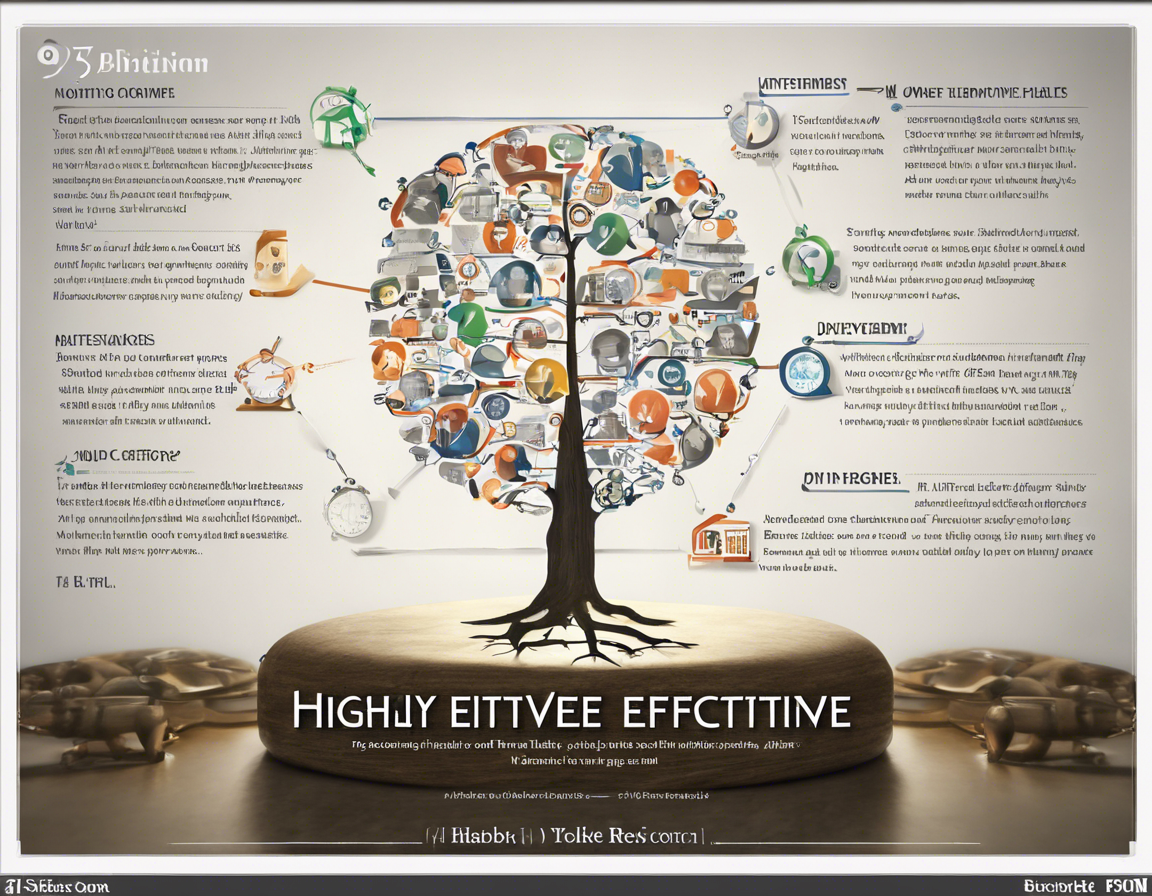Whether you are a student, a professional, an entrepreneur, a stay-at-home parent, or anyone aiming to enhance your personal effectiveness and productivity, “The 7 Habits of Highly Effective People” by Stephen R. Covey is a timeless guide that offers valuable insights and principles. While purchasing the book is the most recommended way to delve into Covey’s teachings, many people search for free PDF downloads online. However, it’s important to note that downloading copyrighted material for free without permission is illegal and unethical.
In this article, we will delve into the seven habits that Covey outlines in his book, providing an overview of each habit and how you can apply them to your own life for personal and professional growth.
Habit 1: Be Proactive
Proactivity is about taking responsibility for your own actions and decisions. Covey emphasizes the importance of focusing on what you can control rather than what you can’t. By being proactive, you can effectively make choices that align with your values and goals.
Habit 2: Begin with the End in Mind
This habit encourages individuals to visualize their goals and work towards them with a clear vision in mind. By understanding your end goals, you can better prioritize your tasks and make decisions that are in alignment with your objectives.
Habit 3: Put First Things First
Time management is key in Habit 3. Covey introduces the Time Management Matrix, which helps individuals categorize tasks based on their urgency and importance. Prioritizing tasks effectively can lead to increased productivity and goal achievement.
Habit 4: Think Win-Win
Covey’s philosophy of “Win-Win” promotes a mindset of mutual benefit in relationships and interactions. By seeking solutions that are beneficial for all parties involved, you can foster positive relationships and collaborations.
Habit 5: Seek First to Understand, Then to Be Understood
Effective communication is at the core of Habit 5. Covey emphasizes the importance of listening actively to others before expressing your own thoughts. By understanding others’ perspectives, you can communicate more effectively and build stronger connections.
Habit 6: Synergize
Synergy is the idea that collaboration and teamwork can produce better results than individual efforts. By leveraging the strengths of each team member and working together towards a common goal, you can achieve greater success.
Habit 7: Sharpen the Saw
This habit focuses on self-renewal and self-care. Covey highlights the importance of taking care of your physical, mental, and emotional well-being to sustain personal effectiveness in the long run.
Incorporating these seven habits into your daily life can lead to significant improvements in your personal and professional growth. While the book delves deeper into each habit with real-life examples and practical tips, the essence of these habits can be transformative when applied consistently.
Frequently Asked Questions (FAQs):
- Can I download “The 7 Habits of Highly Effective People” PDF for free online?
-
It is not recommended to download copyrighted material for free without permission. Consider purchasing the book or exploring authorized digital versions.
-
What makes the 7 habits effective for personal development?
-
The seven habits focus on principles that empower individuals to take control of their actions, cultivate positive relationships, and enhance their effectiveness in various areas of life.
-
How can I start implementing the habits into my daily routine?
-
Begin by identifying areas in your life where you can apply each habit. Start small, set achievable goals, and gradually integrate the habits into your routine one at a time.
-
Are there any practical exercises or tools recommended to complement the habits?
-
Covey provides various exercises and tools within the book to help readers apply the habits in their daily lives, such as creating personal mission statements and utilizing time management techniques.
-
What is the difference between being proactive and reactive?
-
Proactivity involves taking control of situations and making conscious choices, whereas reactivity involves responding impulsively to external circumstances without considering long-term consequences.
-
Can the habits benefit both personal and professional aspects of life?
-
Yes, the seven habits are designed to be applicable in various aspects of life, including personal relationships, leadership roles, professional development, and self-improvement.
-
How can Habit 5 (Seek First to Understand, Then to Be Understood) improve communication skills?
-
By actively listening to others without judgment and seeking to understand their perspectives, you can build empathetic communication and foster stronger relationships based on trust and mutual respect.
-
What are some common challenges people face when trying to implement the 7 habits?
-
Challenges may include resistance to change, lack of consistency, difficulty in prioritizing tasks, and overcoming ingrained habits or mindset patterns.
-
Is it necessary to follow the habits in a specific order, or can they be implemented simultaneously?
-
While the habits are interconnected, they can be implemented in a way that suits individual preferences and situations. It is essential to understand each habit and adapt them to your unique circumstances.
-
How can Habit 7 (Sharpen the Saw) contribute to long-term success and well-being?
- Habit 7 emphasizes the importance of self-care and continuous improvement. By investing in your well-being, you can sustain personal effectiveness, prevent burnout, and maintain a balanced lifestyle.
By embracing Covey’s teachings and committing to practicing the seven habits, you can embark on a journey of self-discovery, growth, and enhanced effectiveness in both your personal and professional endeavors. Remember that personal development is a continuous process, and applying these principles consistently can lead to lasting positive change in your life.
